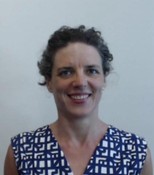
Dr Sophie Raynor ~ Lecturer, Mathematics
Physical Sciences
- About
-
- Teaching
- Interests
-
- Research
-
- New geometric methods in coral classification and reef conservation.
- Fundamental mathematics and real-world challenges. Applications of (modular) operads in computing and data science.
- Generalised operad theory and diagram categories. With focus on modular operads and geometric and algebraic approaches to higher structures.
- Teaching
-
- Universal design for learning and assessment. Building mathematical confidence, creativity, autonomy and achievement in all learners.
- Strategies to address obstacles to mathematical participation and achievement and improve retention of (marginalised) students, supporting different learners (with particular expertise in neurodivergence), outreach pitfalls.
- Experience
-
- 2022 to present - Lecturer, mathematics, James Cook University (Townsville, Bindal Land)
- 2022 to 2026 - AustMS ECR Representative (nominated and elected), Australian Mathematical Society
- 2019 to 2021 - Postdoctoral research fellow, Centre of Australian Category Theory, Macquarie University (Sydney, Dharug Country)
- 2012 to 2018 - PhD student (funded by competitve studentship from Blue Brain Project), Aberdeen University and EPFL (Aberdeen, Scotland and Lausanne, Switzerland)
- 2002 to 2010 - BScMSc, Mathematics and Statistics, Leiden University (Netherlands)
- 1997 to 2000 - BA Hons (MA Cantab), Philosophy, King's College, Cambridge University (UK)
- Research Disciplines
- Socio-Economic Objectives
I am a theoretical mathematician whose work seeks to understand the most fundamental (abstract) features of structures and systems in nature, information, and mathematics.
In a world full of pressing problems, the value of pure (as opposed to applied) mathematics is not always obvious. Yet most of my work has been motivated by real-word scientific questions like: “how does global data about the brain (e.g. from fMRI scans) relate to microscopic local information about individual neurons and their connections?”. Or, more generally: “can we find general theoretical principles that underly inter-scale relationships and emergent properties in complex networked systems?”.
My research has developed novel methods to solve a long-standing foundational problem related to the mathematics underlying networks with cycles. Current research builds on those foundations to investigate the algebra and geometry of such systems. By investigating the fundamental mathematics underlying complex networks, we can hope to develop new solutions to a range of (environmental, social and technological) challenges: for example, towards improving efficiency and interpretability of AI algorithms.
Inspired by JCU’s unique location and local expertise, I have recently started projects – in collaboration with reef scientists (at JCU and at the Museum of Tropical Queensland) -- to develop new geometric tools for coral classification and reef conservation.
If you are a student interested in learning more any of these themes, or fascinated by shapes, patterns or abstract maths in general, then please get in touch.
I subscribe to Frederico Ardila’s Axioms for Mathematics and recognise the high concentration of mathematical talent -- that is independent of previous mathematical experiences -- among our student cohort. As a teacher, my main focus is on creating genuine opportunities for all students to participate and excel. I welcome questions and conversations on all aspects of inclusion in mathematics.
- Publications
-
These are the most recent publications associated with this author. To see a detailed profile of all publications stored at JCU, visit ResearchOnline@JCU.
- Journal Articles
-
- Basualdo Bonatto L, Chettih S, Linton A, Raynor S, Robertson M and Wahl N (2022) An infinity operad of normalized cacti. Topology and its Applications, 316.
- Raynor S (2021) Graphical combinatorics and a distributive law for modular operads. Advances in Mathematics, 392.
- Supervision
-
Advisory Accreditation: I can be on your Advisory Panel as a Primary or Secondary Advisor.
These Higher Degree Research projects are either current or by students who have completed their studies within the past 5 years at JCU. Linked titles show theses available within ResearchOnline@JCU.
- Current
-
- A proposed novel mechanism enabling evolutionary fitness-valley crossing: rapid macroevolutionary differentiation following mass extinction by means of ?genetic annealing? (PhD , Secondary Advisor)
- Collaboration
-
The map shows research collaborations by institution from the past 7 years.
Note: Map points are indicative of the countries or states that institutions are associated with.- 5+ collaborations
- 4 collaborations
- 3 collaborations
- 2 collaborations
- 1 collaboration
- Indicates the Tropics (Torrid Zone)
Connect with me
- Phone
- Location
- Advisory Accreditation
- Primary Advisor
- Find me on…
-


Similar to me
-
A/Prof Bronson PhilippaEngineering
-
A/Prof Shaun BelwardPhysical Sciences
-
Samson OgunladePublic Health & Tropical Medicine
-
Prof Emma McBrydeAustralian Institute of Tropical Health & Medicine
-
Dr Michael MeehanPublic Health & Tropical Medicine

